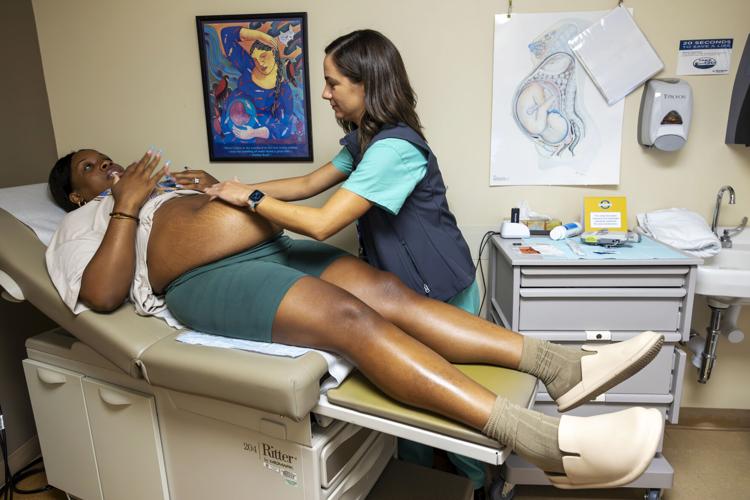In one word, sick.
Louisiana maternal and infant mortality rates are not acceptable in the age of "modern" medicine.
In medicine, doctors train to identify disease and then treat it. We need to shift our focus and our money toward investing in the prevention of disease. A natural place to begin is with the health of expectant mothers and the children in their wombs.?
Obstetricians welcome expectant mothers into their practice with the hope and optimism of bringing new life into this world. At birth, the pediatrician assumes the medical care of the baby, again with hope and optimism for the child’s future.
Sadly, today, in Louisiana, physicians look into the eyes of their patients and see despair, not hope. Those caring for expectant mothers see women suffering adverse events during the most crucial time in their developing child’s life. Adverse events such as abject poverty, food and housing insecurity, depression, substance use, domestic violence and addiction all negatively impact the developing fetus.
These social determinants of health are devastating to the hope and promise of a healthy-term newborn. Science now tells us a prenatal environment such as the one described above is more likely to produce an unhealthy newborn. Today, too many babies are born with neonatal abstinence syndrome (addicted to drugs at birth), prematurity, congenital syphilis and other diseases.?
Louisiana can and must do better.
We have elected a new governor. He will have the same party affiliation as most state legislators. They have the opportunity to change the trajectory of our expectant mothers and their soon-to-be-born children. With the executive and legislative branches of Louisiana’s government being in lock-step, they can more easily unite, without divisiveness, to strengthen our collective future, especially for the newborn babies we all cherish.
To help reduce maternal and infant mortality while improving maternal infant health, we need to distribute Medicaid dollars differently such that we address the social determinants of health (SDOH), defined as the conditions in the environments where people are born, live, learn, work, play, worship and age that affect a wide range of health, functioning and quality of life outcomes and risks.
One domain of SDOH is health care access and quality. The health professionals caring for the most vulnerable women and children, those insured by Medicaid, are poorly paid for the care they provide. For poor families to have equal access to quality health care, medical professionals need fair reimbursement, comparable to Medicare or commercial insurance.
The Medicaid-to-Medicare fee index measures physician fees relative to Medicare fees in each state. The MMFI is a computed ratio of the Medicaid fee for each service in each state to the Medicare fee for the same services. The 2019 MMFI ranking for Louisiana for primary care is 31st and for obstetrical care, 41st. For comparison, Mississippi’s MMFI rankings for primary care and obstetrical care are 8th and 23rd respectively. Investing in the maternal child health professional’s fee structure will improve true access and quality care for women and children. More access to care for expectant mothers means more prenatal care, behavioral health care, addiction treatment, nutritional services and counseling, thus producing disease-free, healthier, less costly newborns.
Research from Nobel laureate economist James Heckman demonstrates the single best investment we can make is in the minds of our developing children, especially from the prenatal period through the child’s fifth birthday.
Investing in maternal child health professionals is crucial to improving access and outcomes. The return on investing in maternal child health outperforms Wall Street every day.
Our state elected officials are working on next year’s budget. Louisiana is flush with dollars to invest in our state’s future.
I am hopeful each of us will convince our elected leaders to invest in a way that shines a light of hope upon our mothers and children, and the professionals caring for them.
The health of Louisiana and her children are dependent upon our actions.
Stewart T. Gordon, M.D., is a Baton Rouge pediatrician.


